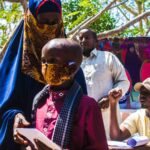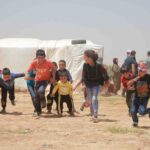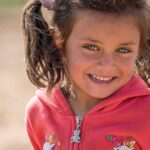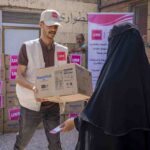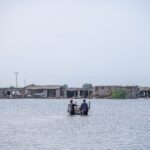UMR seeks to provide a wraparound program for children and their families who are affected by conflict. Our Psycho-Social Support (PSS) and Child-Friendly Space initiatives give refugee women and children coping mechanisms to mitigate trauma while increasing critical thinking skills among children, especially younger ones, violence reduction among peers, and greater connectivity and comfort with their host community at large. The UMR Jordan PSS team supports children by listening to them, providing them with a safe space and atmosphere to express their feelings and work through the pain, consequently, transforming their negative emotions into something productive. The PSS project also emphasizes the importance of strengthening their social environment, which has a great effect on the beneficiaries’ psychological health and development on various levels; with the family, community, and the beneficiaries themselves.
 The UMR Jordan PSS team has also adopted “We Love Reading”- an informal education curriculum designed for children who have experienced education disruption due to conflict. Refugees who do attend regular schooling are often victims of bullying which increases social isolation and can exacerbate mental trauma. “We Love Reading” is designed to teach young children literacy skills, introduce critical thinking through play therapy, and cultivate an early thirst for education that can carry forward when formal schooling options become available.
The UMR Jordan PSS team has also adopted “We Love Reading”- an informal education curriculum designed for children who have experienced education disruption due to conflict. Refugees who do attend regular schooling are often victims of bullying which increases social isolation and can exacerbate mental trauma. “We Love Reading” is designed to teach young children literacy skills, introduce critical thinking through play therapy, and cultivate an early thirst for education that can carry forward when formal schooling options become available.
The program also provides awareness sessions, for topics such as sexual harassment, bullying, hygiene, emotional intelligence-EI, ethics, counseling, and psychotherapy sessions (PTSD, and Psychiatric Disturbance) in order to help them cope with their environment and society.
UMR Jordan initially:
- Assesses the social, financial, mental and physical health condition of a family; women and children (age 6-18), through house visits
- Studies and evaluates the situation of children and women according to their age, social, mental, and emotional needs, in addition to their social environment statuses, for the enrollment of UMR’s specialized PSS programs
- Builds up the entire program that properly fits their needs. It is usually divided into 4-6 awareness and counseling sessions and at least 12 sessions for psychotherapy
This is an ongoing program. Since its inception in 2016, 104 teenagers 13-18 years old, have attended the PSS activities designed to help them positively express their emotions, cultivate positive parent-child relations, find productive hobbies, and reduction of physical and emotional aggression towards themselves and others.

694 children between 5 and 12 years old attended PSS activities and been engaged in play therapy designed to help them express their feelings and build their self-esteem. They also discover appropriate behaviors when interfacing with parents, siblings, teachers, and elderly people to rebuild communal connections often lost to refugees.



